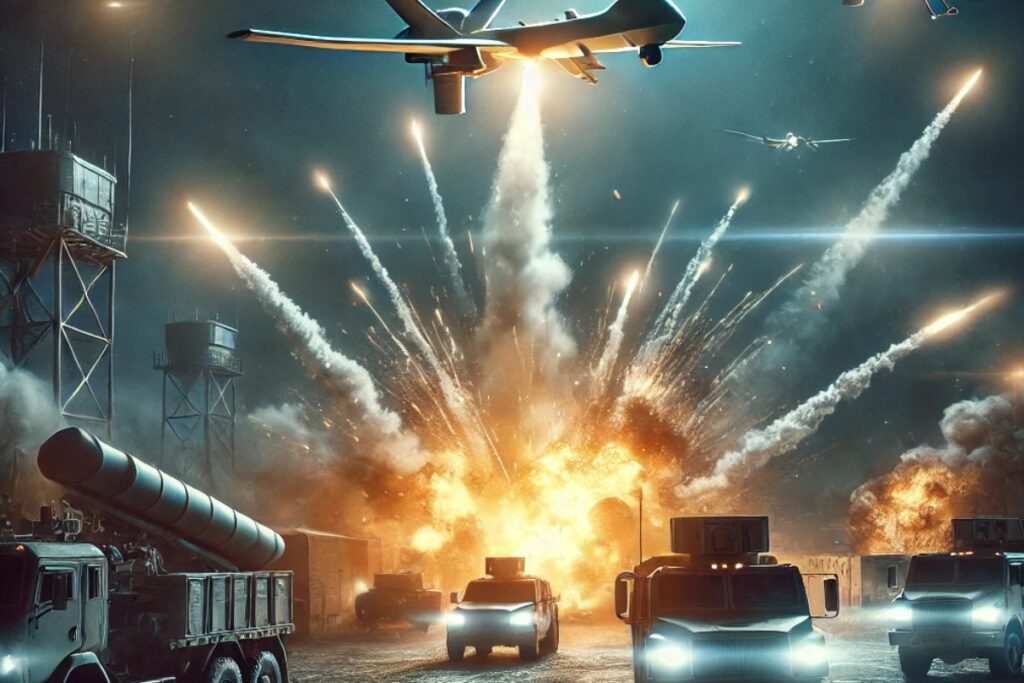The Middle East has long been a hotbed of geopolitical tensions, with Israel and Iran often at the center of these conflicts. Recently, the region has witnessed a significant escalation as Israel repelled what is being reported as Iran’s first direct attack on its territory. This development raises critical questions about Israel’s preparedness to respond to further aggression and the broader implications for regional stability. In this blog post, we will explore Israel’s military readiness, its potential responses, and the wider geopolitical consequences of this confrontation.
The Context of the Conflict
The tension between Israel and Iran is not new, but the recent direct attack marks a significant escalation in their long-standing animosity. High-volume keywords: “Israel-Iran conflict,” “Middle East tensions,” “geopolitical conflicts.”
Historical Background
Israel and Iran have been engaged in a proxy conflict for years, with both countries supporting opposing factions in various Middle Eastern conflicts. Iran’s support for militant groups such as Hezbollah and Hamas has fueled tensions, while Israel has conducted numerous airstrikes against Iranian targets in Syria and other regions.
Example: Israel’s air campaign in Syria, aimed at preventing Iran from establishing a military foothold near its borders, has been a significant factor in the ongoing hostilities.
The Recent Attack
Reports indicate that Iran’s direct attack on Israel involved missile strikes, marking a departure from its usual proxy warfare tactics. This attack has heightened fears of a broader conflict and has put Israel on high alert.
Example: The attack was met with a swift response from Israel’s Iron Dome defense system, which intercepted the missiles, preventing casualties and damage.
Israel’s Military Preparedness
In light of this recent aggression, Israel’s military readiness has come under scrutiny. High-volume keywords: “Israel military strength,” “Iron Dome system,” “IDF capabilities.”
Iron Dome and Missile Defense
Israel’s Iron Dome missile defense system has proven to be a crucial asset in protecting the country from aerial attacks. The system is designed to intercept short-range rockets and artillery shells, with a high success rate in neutralizing incoming threats.
Example: During the recent attack, the Iron Dome successfully intercepted multiple missiles, demonstrating its effectiveness and Israel’s preparedness to defend against aerial threats.
The Israel Defense Forces (IDF)
The IDF is known for its advanced capabilities, including cutting-edge technology, well-trained personnel, and a robust intelligence network. These factors contribute to Israel’s ability to respond swiftly and decisively to threats.
Example: The IDF’s extensive experience in counterterrorism and urban warfare, combined with its technological edge, positions Israel well to handle escalations in the region.
Potential Responses and Geopolitical Implications
Israel’s response to Iran’s direct attack could shape the future of Middle Eastern geopolitics. High-volume keywords: “Israel’s response to Iran,” “geopolitical implications,” “Middle East security.”
Diplomatic Maneuvers
Israel may choose to pursue diplomatic avenues, seeking support from international allies such as the United States and European nations. Diplomatic pressure could be used to isolate Iran further and rally global condemnation of its actions.
Example: Israel’s close relationship with the U.S. could lead to coordinated efforts to impose stricter sanctions on Iran, aiming to curb its regional ambitions.
Military Retaliation
Alternatively, Israel could opt for a military response, targeting Iranian assets in the region. Such actions would likely be calculated to minimize broader conflict while sending a clear message of deterrence.
Example: Israel’s history of targeted airstrikes against Iranian positions in Syria suggests that a similar approach could be taken in response to the recent attack.
Regional Stability
The escalation between Israel and Iran has broader implications for regional stability. An intensification of hostilities could draw in other countries and militant groups, leading to a more widespread conflict.
Example: The involvement of groups like Hezbollah in Lebanon or Iran-backed militias in Iraq could exacerbate the situation, leading to a multi-front conflict.
Conclusion
As Israel repels Iran’s first direct attack, the world watches closely to see how the situation will evolve. Israel’s military preparedness, particularly its missile defense capabilities and the strength of the IDF, suggests that the country is well-equipped to handle further aggression. However, the potential for military retaliation or diplomatic maneuvers could significantly impact the region’s future stability. The coming days and weeks will be crucial in determining whether this confrontation will escalate into a broader conflict or if cooler heads will prevail to maintain a fragile peace.


